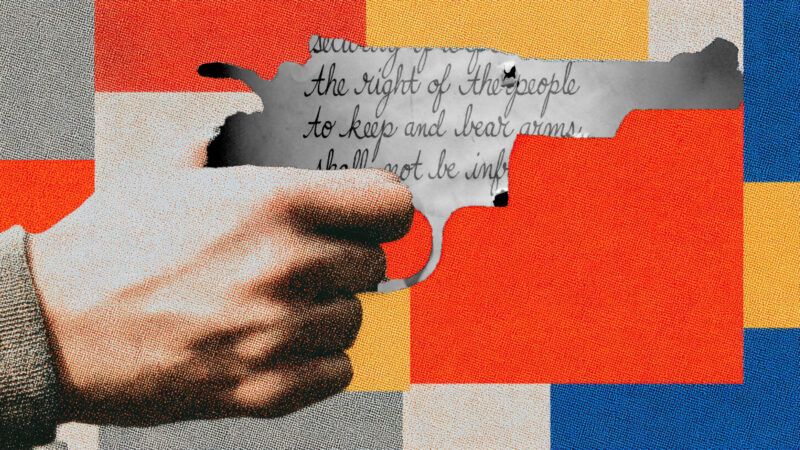Why Does SCOTUS Hear So Few Second Amendment Cases?
The right to keep and bear arms occupies a curious place in American legal history.

The Second Amendment occupies a curious place in American legal history. It has been sitting right there in the Bill of Rights since those amendments were first added to the Constitution in 1791. Yet it was not until the 2008 case of District of Columbia v. Heller that the U.S. Supreme Court got around to recognizing what many legal scholars had been saying all along: Namely, that the right to keep and bear arms is an individual right, not a collective right, nor a state's right.
Two years after Heller, in 2010's McDonald v. Chicago, the Court additionally held that the individual right to keep and bear arms that applied against the federal enclave of D.C. also applied against state and local governments.
But then the Supreme Court sort of went quiet for a while. The next truly major Second Amendment case did not arrive until 2022's New York State Rifle and Pistol Association v. Bruen, which extended the logic of Heller and McDonald to recognize "an individual's right to carry a handgun for self-defense outside the home."
The recent news that the Supreme Court has agreed to hear a new Second Amendment dispute later this term raises the interesting question of why it takes the Court so long to hear so few of these kinds of cases. What gives?
You’re reading Injustice System from Damon Root and Reason. Get more of Damon’s commentary on constitutional law and American history.
For a persuasive explanation of the Supreme Court's pre-Heller silence on the Second Amendment, I recommend reading a 1989 Yale Law Journal article titled "The Embarrassing Second Amendment," written by the liberal law professor Sanford Levinson. "I cannot help but suspect that the best explanation for the absence of the Second Amendment from the legal consciousness of the elite bar," Levinson wrote, "is derived from a mixture of sheer opposition to the idea of private ownership of guns and the perhaps subconscious fear that altogether plausible, and perhaps even 'winning' interpretations would present real hurdles to those of us supporting prohibitory regulation." In this telling, legal elites basically understood that if the Second Amendment was ever taken seriously, then some (or even many) gun control laws would necessarily fall. So they just declined to take the amendment seriously.
But if that explains some or all of the pre-Heller period, what explains the more recent era? One explanation may be found in an oft-quoted passage from Justice Antonin Scalia's Heller decision. "Nothing in our opinion," Scalia wrote, "should be taken to cast doubt on longstanding prohibitions on the possession of firearms by felons and the mentally ill, or laws forbidding the carrying of firearms in sensitive places such as schools and government buildings, or laws imposing conditions and qualifications on the commercial sale of arms."
I recall several Second Amendment advocates grumbling to me at the time that this passage by Scalia was both unnecessary to the outcome of the case and potentially quite injurious to the broader gun rights cause. Those advocates feared that the gun control side would immediately grab hold of the "sensitive places" exception and run with it, leading to more regulations on guns instead of less.
And the federal courts would, of course, have to deal with Scalia's language, too. In fact, Justice Brett Kavanaugh, joined by Chief Justice John Roberts, invoked that very language by Scalia in a notable concurrence filed in the Bruen case. "Properly interpreted," Kavanaugh wrote, "the Second Amendment allows a 'variety' of gun regulations."
Why did Kavanaugh feel compelled to emphasize that particular point in a separate concurrence that managed to garner the support of only the chief justice? I speculated at the time that Kavanaugh "may be signaling to the lower courts that, in his view, many such gun control regulations are presumptively constitutional, and lower court judges should therefore act accordingly."
In other words, Kavanaugh and Roberts might be less hawkish on gun rights than some of their colleagues. And there might be a small but growing fissure among the Court's "conservative bloc" over just how broadly the Second Amendment should be interpreted and enforced. That fissure, if it exists, might also explain why the post-Heller Court has not exactly been in a hurry to take up new gun rights cases.
We'll learn more when the Supreme Court takes up this latest gun rights case, Wolford v. Lopez, in earnest later this term. For now, we're still left to ponder the Second Amendment's curious position.
